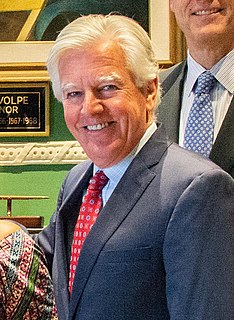A Quote by Barton Gellman
At Cheney's initiative, the United States stripped terror suspects of long-established rights under domestic and international law, building a new legal edifice under exclusive White House ownership.
Related Quotes
US law and international human rights law have radically diverged in the past years in terms of the recognition of indigenous people's rights. International human rights law now looks at not whether or not the tribes have formal ownership or legal title in a Western legal conception might have it, but rather they look at the tribe's historical connection to that land.
Human rights and international criminal law both illustrate the contradictory potential of international law. On one level, the imposition of human rights norms is a restraint on interventionary diplomacy, especially if coupled with respect for the legal norm of self-determination. But on another level, the protection of human rights creates a pretext for intervention as given approval by the UN Security Council in the form of the R2P (responsibility to protect) norm, as used in the 2011 Libyan intervention. The same applies with international criminal accountability.
The problem with the United States is that it is making an increased use of drones/Predators [which are] particularly prominently used now in relation to Pakistan and Afghanistan...My concern is that drones/Predators are being operated in a framework which may well violate international humanitarian law and international human rights law.
Breaking the United States up into a number of pieces could be very good for the integration of those new nations with the rest of the world and the international law whose primary enemy is now the United States government. I think that it would be very good for democracy, for people to be within some hundreds of miles of their nation's capital, as they are in many other countries, so that they didn't have to travel thousands of miles to protest, to exercise their First Amendment rights, but that is the current state of affairs in this overly large, imperial nation.
There had been a free and open election in Haiti in the early 1990s and president Jean-Bertrand Aristide won, a populist priest. A few months later came the expected military coup - a very vicious military junta took over, of which the United States was passively supportive. Not openly, of course, but Haitians started to flee from the terror and were sent back and on towards Guantanamo Bay. Of course, that is against International Law. But the United States pretended that they were "economic refugees."
It is a great problem for the true international agenda of human rights that the United States, uniquely among industrialised countries, has not ratified three main instruments, has not ratified the Covenant on Economic, Social and Cultural Rights, or the Convention on the Rights of the Child, or the Convention for the Elimination of Discrimination Against Women, and we could have so much richer a debate and dialogue on international human rights standards if the superpower would sign up to the agenda.
My basic approach is to recognize that mainstream legal theories of contract have been muddied by unlibertarian and positivistic conceptions of law and rights. Questions about what rights are "alienable" or not, loose talk about how promises should be "binding," etc., highlight the need for clarity in this area. In my view, to sort these issues out one needs a very clear and consistent understanding of the nature of property rights and ownership.
The international human rights framework is a vital component and engine for promoting global values. Governments have signed up to this international legal framework and we should hold them accountable, in all circumstances from environmental or labour standards, to trade talks, arms control and security issues as well as other international legal codes.































